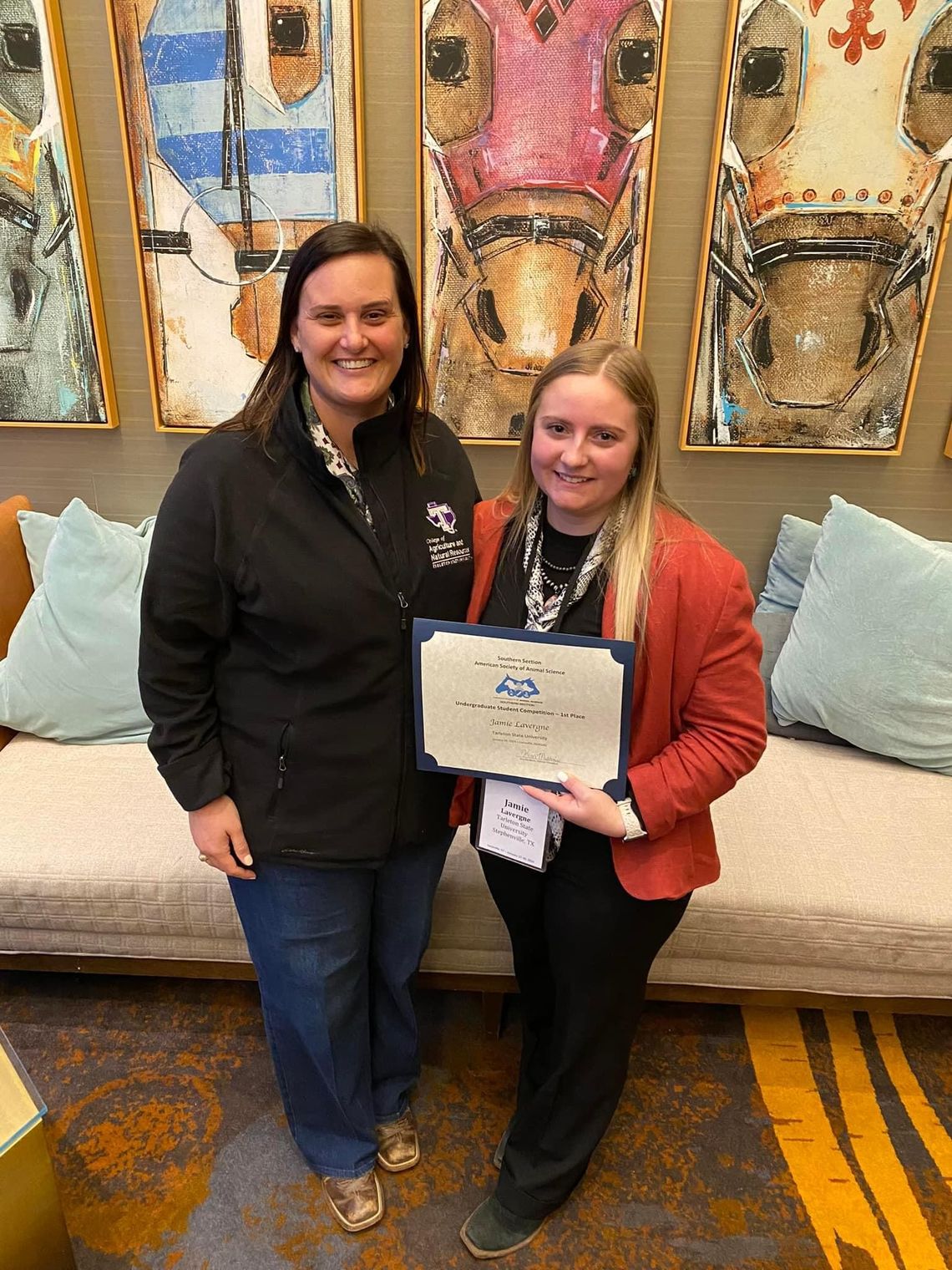BY COPELAND WELCH / Managing Editor
Jamie Lavergne, Kaylee Berry, Kennah Shoaf, Shelby Robbins and others conducted research on 24 two-year-old horses under Faculty Advisor, Dr. Jessica Leatherwood. The research project began in June 2023 and concluded 42 days later, in the middle of August.
The project began with two Tarleton graduate students, Lauren Pavel and Cecilia Gualandri, doing an inflammation marker in the joints of the 24 horses. Eventually, it came time to deworm the horses and that is when a second research project was born.
To further the original research, Lavergne and her counterparts decided to test two brands of dewormer for effectiveness. They collected fecal egg count samples from the 24 horses, placed them under a microscope and tested them for parasites, worms and eggs.
Once the horse’s fecal samples had been tested, the students then classified the horses to determine if they needed to be treated. This treatment was a crucial part of the research because the students needed to decipher if the treatment was effective.
“There was hard work to be done, and it was done, but it was so rewarding in the end,” Lavergne said.
Many students played vital roles in the research project, but Lavergne took a special interest and decided to present the research at the Southern Section Animal Science meeting in Louisville, Kentucky on Jan. 28, 2024. Lavergne won first place in the undergraduate division.
“I think it was a great experience to let myself know that I can actually present this in a way that people can understand, and people can figure out what you’re talking about and convey it in a good way,” Lavergne said.
Presenters were allowed to use one slide when presenting their research. While many presenters created information and data-filled slides, Lavergne took a different approach and had one graphic on her slide that referred to an analogy to help the audience understand her research.
Lavergne’s analogy was comparing the dewormer used in the research project to a neighborhood watch program. In her analogy, the students conducting research were the neighborhood watch group watching for the worms or eggs that were shed in the fecal samples.
Lavergne is a senior animal science major with an equine science certificate. She grew up in the agriculture industry, showing livestock in middle and high school and rodeoing. When she began her education at Tarleton, it was a no-brainer that she wanted to stay involved with the equine industry.
“Coming into college, I knew I wanted to work with horses, and I knew that I wanted to be somewhere in the industry,” Lavergne said.
Berry, an animal science major from Venus, Texas, is another student who was involved in conducting the research. She was proud of Lavergne and appreciates her humble attitude after winning the undergraduate division.
“I remember some times before class, she [Lavergne] would come in and open her PowerPoint and we would look over it and make sure it sounded good and work on her speech,” Berry said. “She was extra prepared, so I was excited for her to go and just even give her speech. So, to hear that she won it was really cool, and she was so like nonchalant about it like ‘Oh I won’ and I was like ‘What! You did not!’ and it’s just so awesome.”
When reflecting on the guidance the students received on this research project provided by their Faculty Advisor Dr. Leatherwood, Lavergne summed it up into one word, “amazing.”
“She was a really great mentor. She helped me say ‘Oh we’re going for this, maybe we should change this, here’s what you need.’ It was just very great and working with her is like an honor basically,” Lavergne said. “She was really great to work under, she helped a lot and she was very knowledgeable, so if I had a question about anything, and I mean anything, she knew the answer within five seconds and could just explain it. I think as an undergraduate that helps a lot, having a professor that is willing to take you on as an undergrad and willing to help you when she has graduate students of her own.”
.png)

Comment
Comments